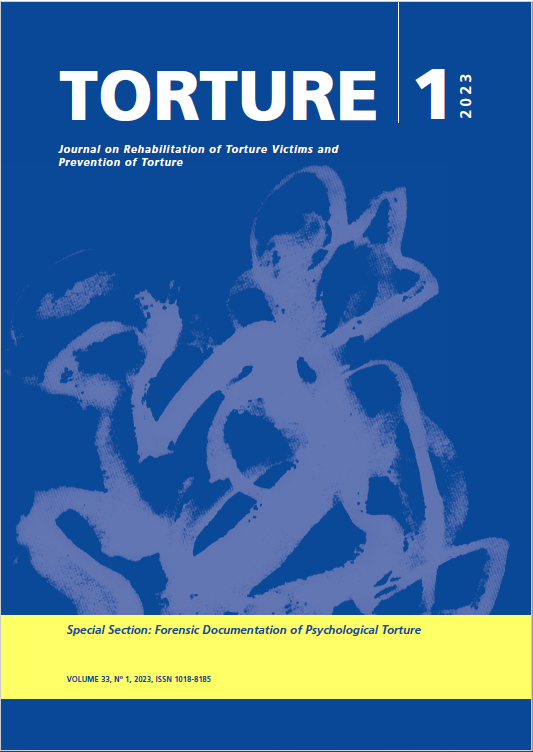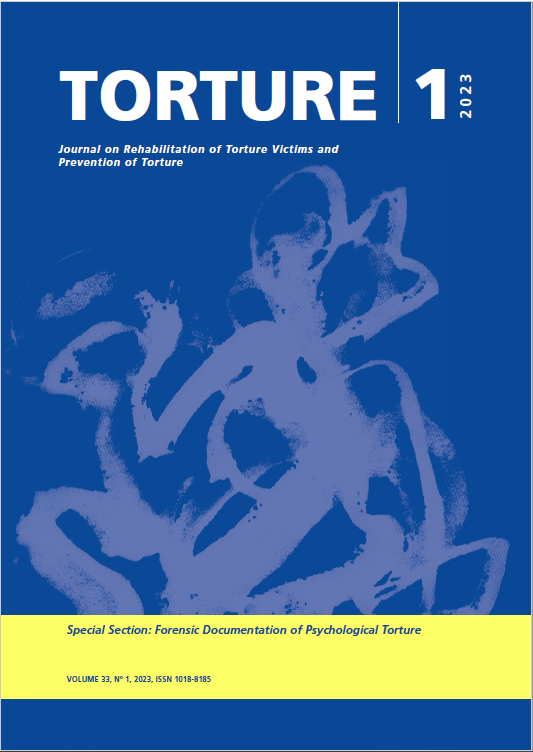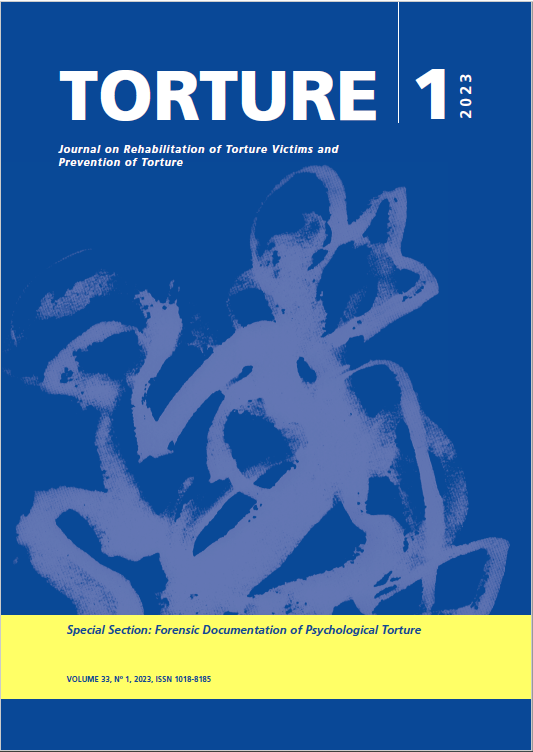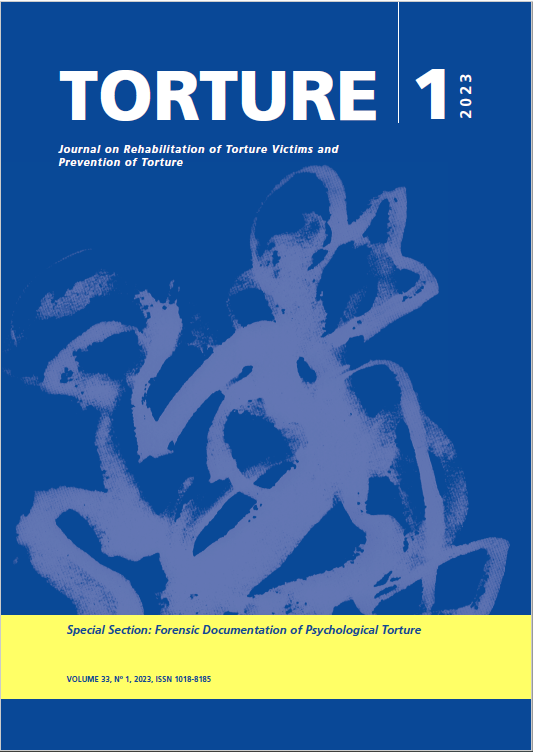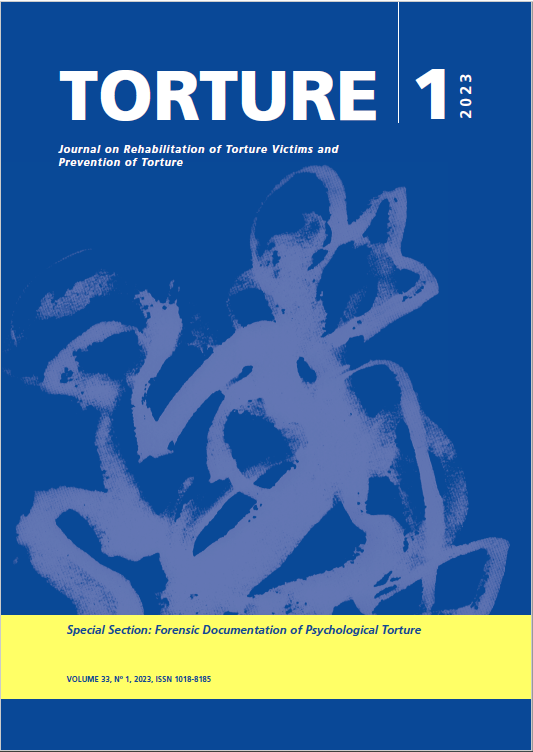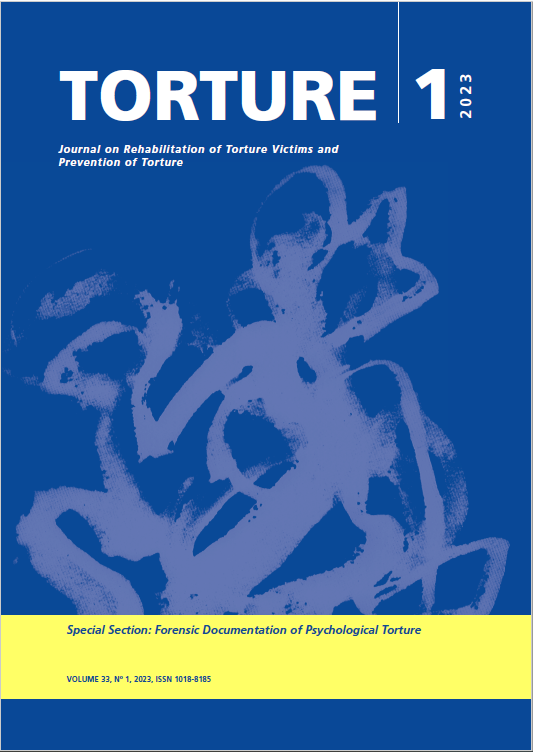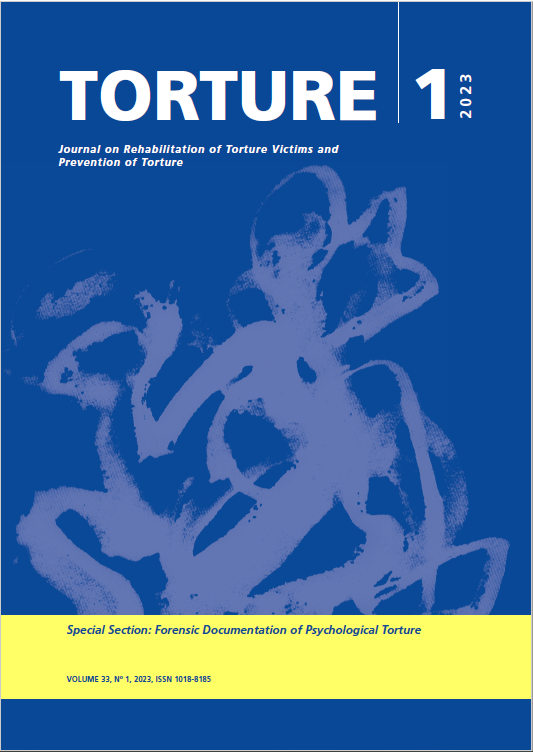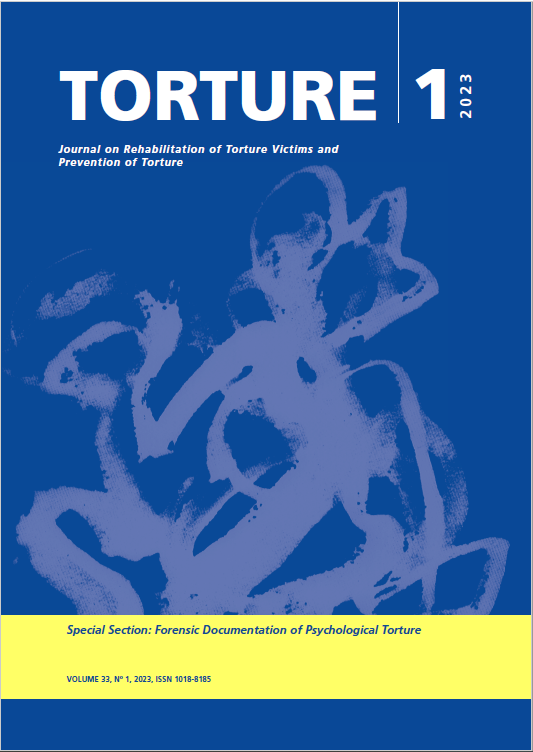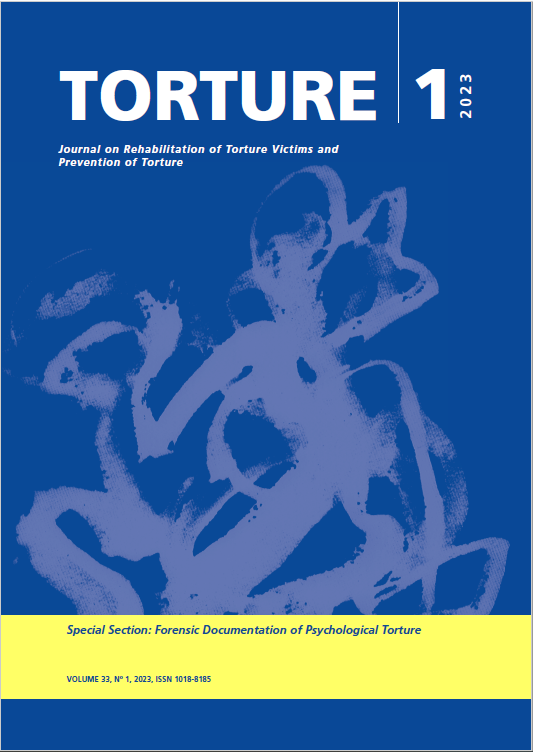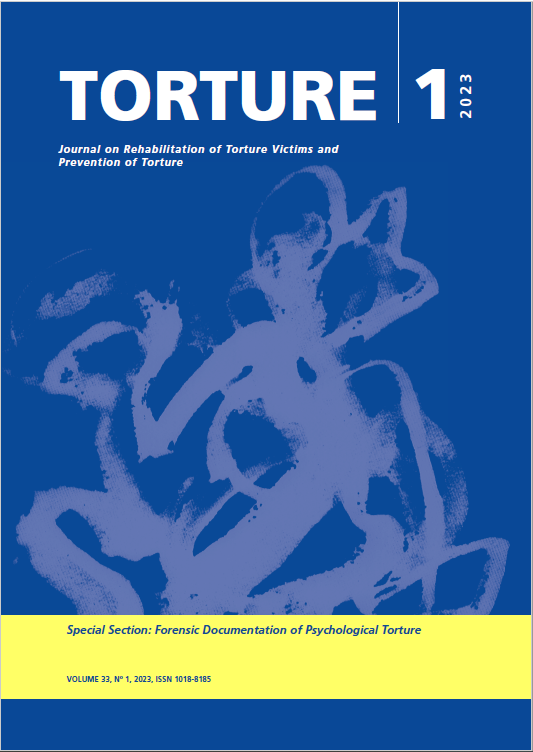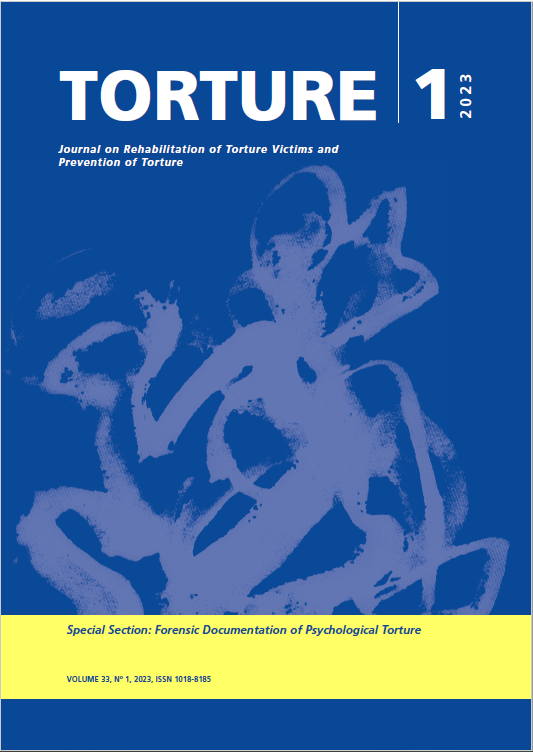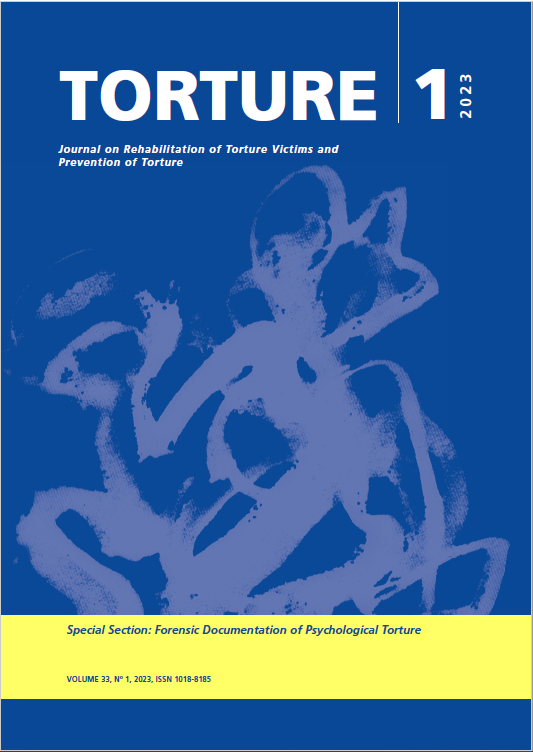Vol. 33 No. 1 (2023): Torture Journal: Journal on Rehabilitation of Torture Victims and Prevention of Torture

What can you find in this issue?
Pau Pérez-Sales and Paula de la Fuente introduce this issue with a quick guide on detection and assessment of victims of torture and ill-treatment in Primary Health Care, incorporating the last advancements of the 2022 Istanbul Protocol.
The Editorial is followed by a section compiling research articles.
Jesús Silva presents a study that describes and classifies the type of torture and ill-treatment in the orofacial area of victims of political repression during the Chilean military dictatorship and relates them to the injuries registered in written reports. It also draws on the psychological impact for victims.
Andrea Galán et al., introduce an exploratory study on the quality of forensic assessments using the Istanbul Protocol in a virtual versus face-to-face environment, through which they assess the advantages and disadvantages of online methodologies for forensic assessments.
İlker Özyıldırım and colleagues, contribute with a study that assesses the effectiveness of psychoanalytic psychotherapy in patients with PTSD as a results of torture and severe human rights violations.
Following these studies, this issue compiles three contributions that conform a special section on forensic documentation of psychological torture.
Given the difficulty to legally substantiate and establish harms produces by threatening acts, as well as to clearly identify the harms that go beyond the fear and stress inherent (hence, unlawful) in law enforcement practices, Pau Pérez-Sales et al. present a Protocol on medico-legal documentation of threats to enhance documentation and assessment of harms so that stronger legal claims can be submitted to local and international complaint mechanisms.
Jane Kilpatrick et al., review the definition and the spectrum of deprivation of sunlight as a method of torture, drawing on the harms caused by this practice that may amount to torture.
Marie Brasholt and colleagues close the special section with the presentation of a Protocol on medico-legal documentation of solitary confinement which seeks to improve documentation of solitary confinement and, hence, to clarify the facts of the case so that stronger legal claims can subsequently be submitted to local and international complaints mechanisms.
In our continuous education section, Olivia Febles Simeon and C. Nicholas Cuneo present the case of MA, a case of a survivor of labour trafficking, kidnapping, and sexual violence in her home country; to demonstrate the value of remote evaluations conducted by health professionals for the purpose of applying for humanitarian parole and prioritizing the most vulnerable cases.
This issue also contains a thematic briefing summarising the key findings and recommendations to the United Nations Working Group following the official presentation of the monographic issue on Enforced Disappearances as Torture in Geneva, together with OMCT, on the 22nd of September.
Moreover, we celebrate the new appointment of our fellow board member, Dr. Alice Edwards, as the new Special Rapporteur against Torture. In this issue, in addition to welcoming her appointment, we include an article written by herself discussing her priorities during her tenure and the role of the Torture Journal.
Finally, this issue also includes the forthcoming call for papers for three special sections on Survivor Engagement, Livelihoods and Prisons, in which we encourage you all to submit papers, in case you have relevant research and/or experiences to share in these areas.
You, the readers and authors, are responsible for the increasing growth of Torture Journal: a home for all.
We would like to especially thank the authors for their excellent work and contribution to the Torture Journal, and OSSTT and STARTTS for their valuable continued support.

